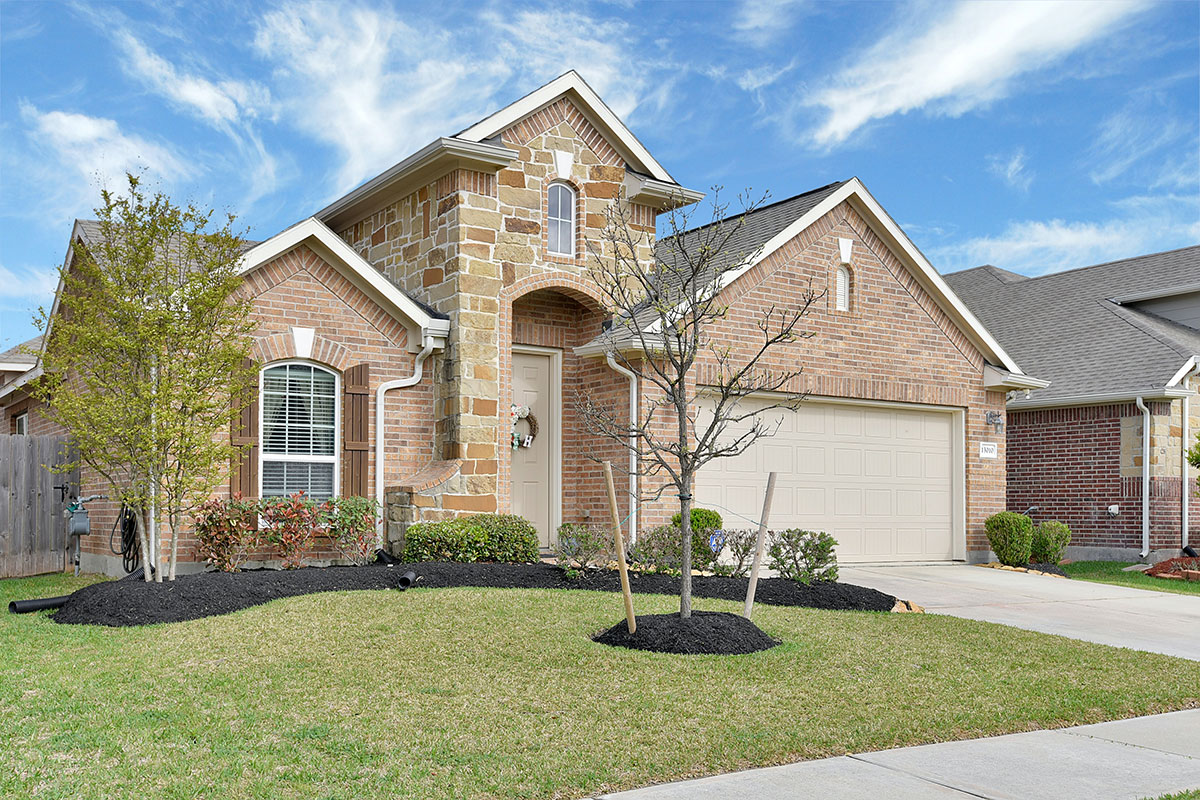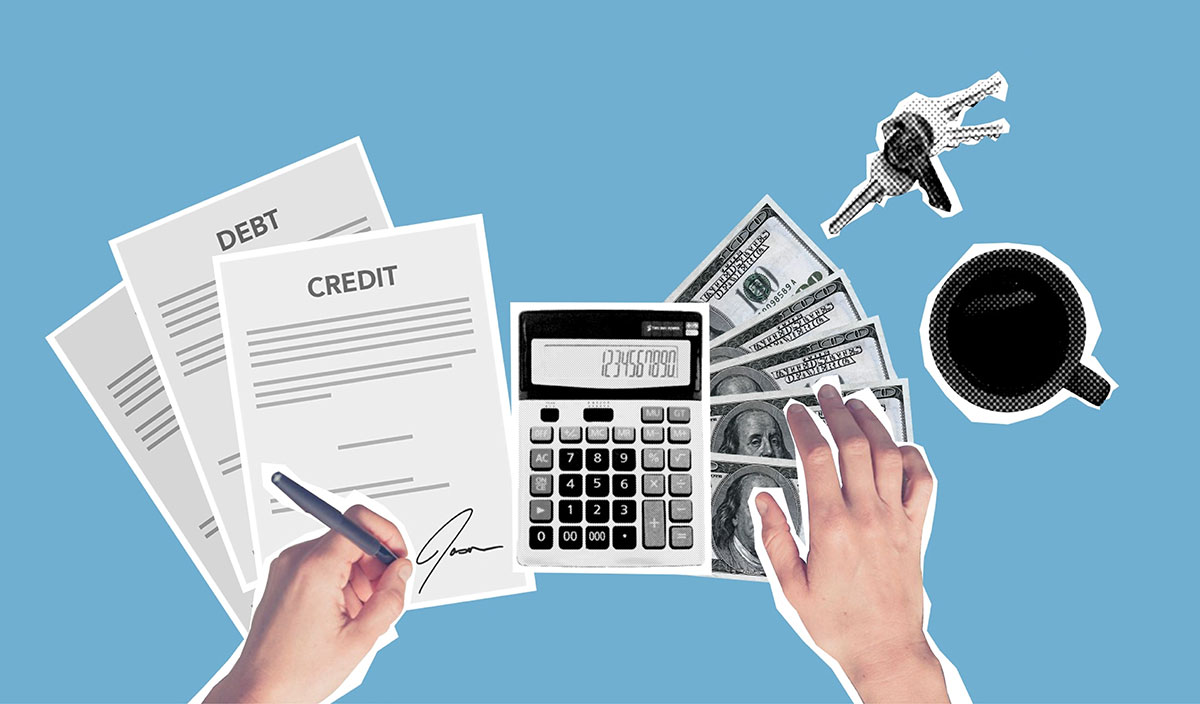Conventional mortgages are loans that are not insured by the government. Instead, they are backed by private lenders. There are several different types of conventional mortgages.
- Fixed-rate mortgage
- Adjustable-rate mortgage (ARM)
- Jumbo mortgage
- Low-down-payment Loan
- Conventional Home Renovation Loan
It's important to understand each type of conventional mortgage and choose the one that best fits your financial situation and long-term goals. If you're planning on buying a home and have a steady income to pay back the loan, a conventional mortgage is probably a good choice for you.
👉 Truss Financial Group offers conventional loans to non-traditional borrowers. Get started today!
What Is a Conventional Mortgage?
A conventional mortgage loan is a type of home loan that is not backed by the government, like an FHA loan, USDA loan, or VA loan. Instead, it is backed by private lenders representing various types of banks, credit unions, and mortgage companies. This means that if you default on your loan, the lender is responsible for covering the cost of the loan, not the government.
When you take out a conventional mortgage loan, you borrow a set amount of money to buy a home. You then pay back the loan over a set period of time, plus interest. The interest rate on a conventional mortgage loan can be either fixed or adjustable. A fixed-rate mortgage loan has an interest rate that remains the same throughout the life of the loan. An adjustable-rate mortgage loan has an interest rate that can change over time. The rate is usually fixed for a set period and then adjusts based on market conditions.
How To Qualify for a Conventional Home Loan
To be eligible for a conventional mortgage, you must meet the basic requirements. To start, you'll need a good credit score. Most lenders like to see a score of at least 620, but some might ask for a higher score of 680 or above.
You must have a stable work history and steady income to show that you can afford the monthly mortgage payments. Lenders generally look for a debt-to-income ratio of 43% or lower to determine if you can handle the loan. You should have a clear title to the property you want to buy, along with a good credit history that shows no recent bankruptcies, foreclosures, or missed credit card payments.
Conforming vs Non-Conforming Mortgage
A conforming mortgage is a loan that meets the guidelines set by Fannie Mae and Freddie Mac. These guidelines include limits on the size of the loan and the borrower's credit score and income.
Fannie Mae and Freddie Mac are not actually people – they are government entities managed by the Federal Housing Finance Agency (FHFA). They support the housing market by purchasing mortgages from lenders and repackaging them into mortgage-backed securities. This makes owning a home more accessible and affordable for millions of American families.
Conforming loans are considered to be less risky for lenders and are therefore available at lower interest rates.
Conforming Mortgage Loan Limit
For conforming loans, the loan amount in most U.S. counties is approximately $726,200 or less. However, in some high-cost counties, the loan amount can be as high as $1,089,300.
A down payment is also required, which is typically anywhere between 3-20% of the property's purchase price, depending on the lender and your financial situation.
Keep in mind that if your down payment is less than 20% of the total cost of the property, you'll likely need mortgage insurance. This is to protect the lender in case you are unable to make your payments.
A non-conforming mortgage does not meet these requirements. These loans typically have higher interest rates because they are considered to be riskier for lenders. Non-conforming mortgages are typically used to finance high-end homes, multi-unit properties, and properties in need of significant repairs.
Conforming mortgages are a good choice for borrowers who have a strong credit history and a steady income, while non-conforming mortgages may be a better option for borrowers with unique financial situations or properties that do not meet conventional loan requirements.
Types of Conventional Mortgages

There are different types of conventional mortgage loans available, each with its pros and cons. When deciding on a conventional mortgage, it's important to think about your finances and long-term goals. Compare rates and loan terms from different companies to make sure you're working with the best mortgage lender.
Fixed-Rate Mortgage
A fixed-rate mortgage has a locked-in interest rate that remains the same throughout the life of the loan. Monthly payments remain constant, making budgeting and financial planning easier.
A fixed rate mortgage is a type of home loan where the interest rate stays the same for the entire loan term, usually 15 or 30 years. With a fixed-rate mortgage, you can budget your expenses more easily because you know exactly how much you'll be paying each month.
Fixed-rate mortgages are good for people who want stability and predictability in their monthly expenses and who plan to stay in their home for the long term. It's important to remember that although your monthly payment will stay the same, your property taxes and insurance can increase over time, which can affect your overall monthly payment.
Adjustable-Rate Mortgage (ARM)
An adjustable-rate mortgage has an interest rate that changes over time. The rate is typically fixed for a certain period of time and then adjusts based on market conditions. ARMs can be beneficial for homebuyers who expect their income to increase in the future, as the adjustable rate can result in lower monthly payments.
The initial interest rate for an ARM is typically lower than the interest rate for a fixed-rate mortgage, which means your monthly mortgage payment will be lower at the beginning. However, because the interest rate can change, your monthly mortgage payment could go up or down in the future.
An adjustable rate mortgage is a good option for people who plan to sell their home or refinance their mortgage before the interest rate adjusts, or for those who are comfortable with the idea of their monthly mortgage payment changing.
Jumbo Loan (Non-Conforming Mortgage )
A jumbo loan is a mortgage loan that exceeds the limits of Fannie Mae and Freddie Mac. Jumbo loans are typically used to finance high-end properties and luxury homes. Unlike conforming loans, jumbo loans are not backed by the government, which means they typically come with higher interest rates and stricter underwriting requirements. Borrowers who are seeking a jumbo loan must typically have a strong credit history and a higher income, as well as a substantial down payment, to qualify for these loans.
Jumbo loans are typically offered by private lenders, and the terms and conditions of these loans can vary depending on the lender and the borrower's circumstances. Borrowers who are unable to qualify for a conventional loan may consider a nonconforming loan as an alternative option for financing their home purchase.
Low-down-payment Loan
This is a conventional mortgage with a low down payment requirement of just 3%. It is designed to make homeownership more accessible to those who may not have the funds for a large down payment.
HomeOne is a type of mortgage loan offered by Freddie Mac. It is designed to provide eligible first-time homebuyers with a low down payment option for purchasing a home. With the HomeOne mortgage, borrowers can put as little as 3% down on a home. To qualify, it must be a new purchase (not a refinance loan), and first-time borrowers must take a homebuyer education course.
Conventional Home Renovation Loan
A conventional home improvement loan, also called a conventional rehab loan, combines the cost of a home and the cost of remodeling into a single loan, making it a convenient financing option for homebuyers who want to purchase and renovate a property at the same time.
Unlike some other renovation loan programs, a conventional rehab loan is not backed by the government, which means that it is not subject to certain restrictions and guidelines. Fannie Mae offers the HomeStyle Renovation Loan, while Freddie Mac offers the CHOICERenovation loan.
The HomeStyle Renovation Loan has a limit of 95% of the value of the home (after the renovations are complete). You can typically choose either an adjustable-rate or fixed-interest rate loan, which is usually lower than a home equity loan or line of credit.
Freddie Mac CHOICERenovation is geared more towards landlords and investors. This renovation loan is available for primary residences, second homes, and investment properties. Borrowers can finance the purchase or refinance of a home and the cost of renovations into a single loan. The loan offers a variety of options for handling different types of renovation projects.
Benefits of a Conventional Loan

What are the benefits of a conventional loan?
Flexibility
A conventional loan offers more flexibility in loan terms, allowing borrowers to choose a loan term that best fits their financial goals and budget. This can include 15-year and 30-year options.
Lower Down Payment
Conventional mortgage loans often have lower down payment requirements than government-backed loans, such as FHA loans, which can make homeownership more accessible for those who may not have the funds for a large down payment.
Mortgage Insurance Can Be Canceled
Conventional mortgages often have the option for the borrower to cancel private mortgage insurance (PMI) once their loan-to-value ratio reaches a certain level. This can lower the monthly payment and overall cost of the loan.
Lower Interest Rates
Since these loans are not backed by the government, they are more attractive to lenders. This leads to lower interest rates compared to government-backed loans, which can save you thousands of dollars over the life of the loan.
Gift Funds Allowed
Conventional mortgage loans often allow the use of gift funds for the down payment and closing costs, making it easier for borrowers who may not have the funds for a large down payment.
Disadvantages of a Conventional Mortgage

While a conventional mortgage loan can offer several benefits, it also has some disadvantages to consider.
Credit Score Requirements
One disadvantage is that conventional mortgage loans typically have higher credit score requirements compared to government-backed loans. This means that some borrowers may not be eligible for a conventional mortgage loan due to their credit history.
Higher Closing Costs
Conventional mortgage loans may have higher closing costs compared to government-backed loans, making them more expensive upfront. Another disadvantage is that conventional mortgage loans may have higher interest rates compared to government-backed loans, which can result in a higher monthly payment and overall cost of the loan.
Income Requirements
Some conventional mortgage loans may have stricter income requirements compared to government-backed loans, making it harder for some borrowers to be approved.
Lack of Government Benefits
Conventional mortgage loans may not have the same protections and benefits as government-backed loans, such as the option to refinance into a lower interest rate or access to government programs for assistance. Borrowers should carefully consider their financial situation and goals before choosing a conventional mortgage loan, and weigh the advantages and disadvantages to determine if it is the right choice for them.
Is a Conventional Mortgage Right for Me?
Conventional mortgage loans are a popular option for home buyers, but it's important to keep in mind that there are many different types of conventional mortgages, each with its own benefits and disadvantages.
Some of the benefits of a conventional mortgage loan include more flexible loan terms, lower down payment requirements, the ability to cancel mortgage insurance, and the potential for lower interest rates. However, conventional mortgage loans may also have disadvantages, such as higher credit score requirements, higher closing costs, and higher interest rates.
When choosing a conventional mortgage loan, it's important to consider your financial situation and long-term goals. You should also do your research to compare interest rates and loan terms from different lenders to make sure you are getting the best deal possible. Overall, a conventional mortgage loan can be a good option for people who want to buy a home and have a steady income to repay the loan over time.
👉 Truss Financial Group offers conventional loans to non-traditional borrowers. Get started today!





